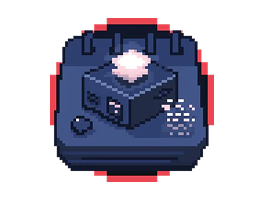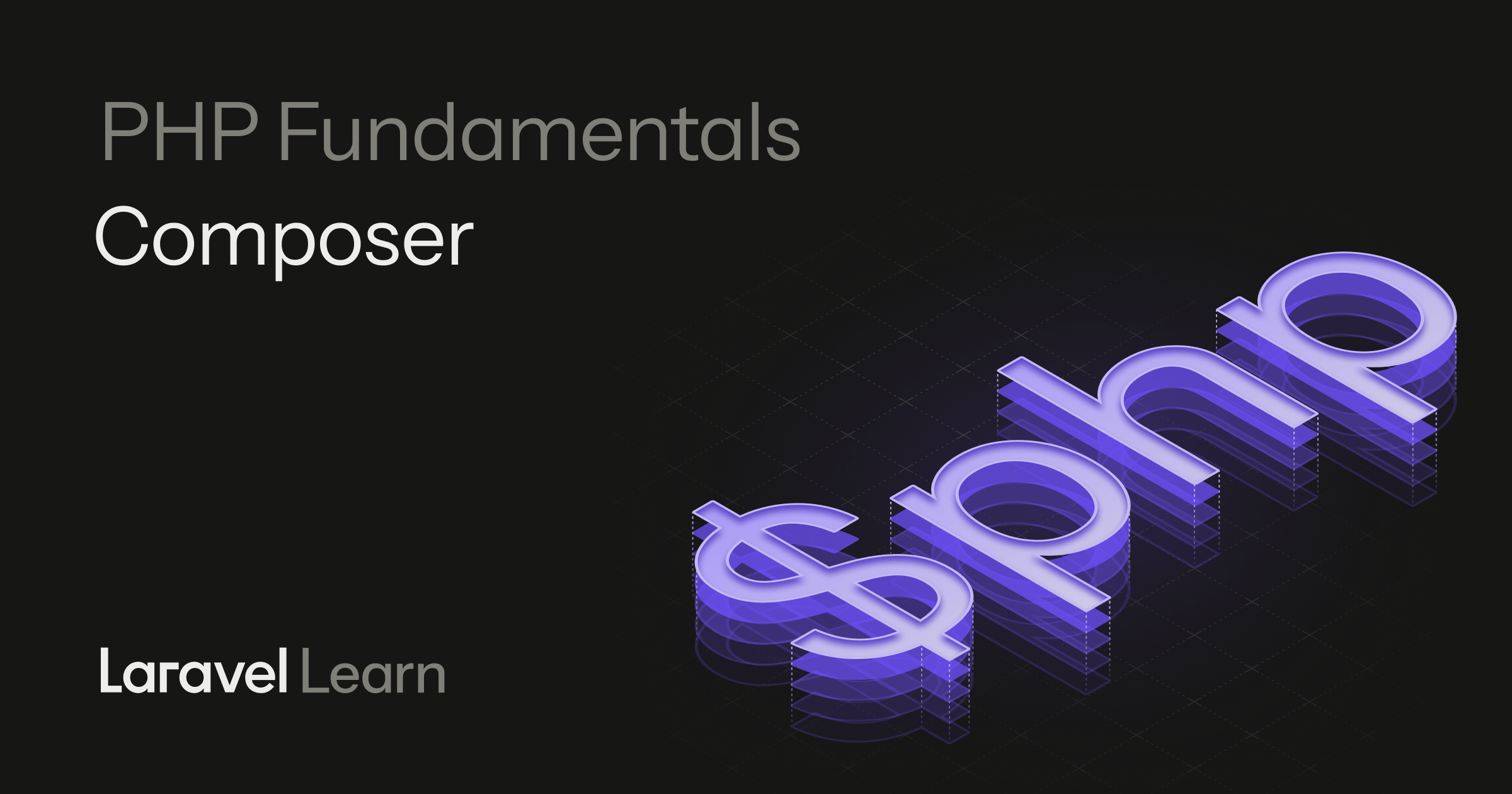00:00
PHP has evolved significantly in recent years, so let's take a look at some modern features
00:05
that make PHP code cleaner, safer, and more enjoyable to write.
00:10
These features are especially relevant when working with frameworks like Lervo.
00:15
So here's a user class very similar to what we had already before with our product class.
00:20
We're defining here the properties and then we have a constructor where we receive data
00:24
from the outside and then we assign it to our properties.
00:27
But I've already shown you that there is a nicer way to write this and this is possible
00:31
since constructor property promotion, which we have in PHP since version 8.0.
00:38
So what we're doing here is we are getting rid of the assignment of the properties here
00:43
and we're doing all of this in the constructor.
00:46
So we're just adding here full, the access level, the type, and the name.
00:51
And the same public string email.
00:55
And now we have defined those here and then we also don't need to assign them anymore.
01:00
This now works automatically, just defining them here in the constructor.
01:05
And yeah, this is now so much cleaner than before and this is such a cool feature.
01:10
I really love this one.
01:13
And since we're already here, another one is we also have read-only properties.
01:18
So you can define a property public read-only string name in this case.
01:23
So this is now read-only.
01:25
So if we create a new user with a name and an email, and let's just echo out the user's
01:33
email, you can see this works.
01:36
It also works for the name.
01:40
But something which we can also do, I think we haven't covered this yet, but you can also
01:44
change public values.
01:46
So let's say the name is now Taylor and not Christoph anymore.
01:51
And if we try to do this, maybe let's start here with the email.
01:56
Doesn't matter that it's not a name, it's still working.
01:58
But if we try to do this now on the name, you will see this will fail because we cannot
02:03
modify read-only properties.
02:05
And that's exactly what we're trying to do here.
02:07
We have a read-only property.
02:09
We want this to be only readable and not to get overridden like we do here.
02:15
So very cool feature as well.
02:17
Change this back to the email where we can change stuff.
02:20
You can see it's working if we try to override this one.
02:24
So not a very cool feature, which we have in PHP since version 8.1.
02:28
Okay, something else.
02:30
Let me bring in here another example.
02:33
So here we have a switch expression.
02:35
So we haven't talked about this yet, but this is possible in PHP.
02:39
So let's imagine you have a status, which comes from somewhere else.
02:44
Let's just say this is 200.
02:46
And then inside the switch here, expression here, we're checking what is the value of
02:52
And then we have different cases.
02:53
So if the value is 200, then we're going to assign this string here to this variable.
02:58
If 204, it's this string and so on.
03:01
If it's something else, then we have this default value.
03:04
In this case, let's echo out what we now got with the result here and should be success.
03:11
And of course, if we change this now to something else, which we haven't defined, where we don't
03:15
have a case for this, and now this is being matched and we get this string.
03:20
By the way, we also have those breaks in between to end every case.
03:25
And yet this has been in PHP for a very long time.
03:29
Nothing bad about this, but yet there is now a little bit nicer way in order to deal with
03:35
So what we can do now is we now have a new match operator, match expression.
03:42
Where we can directly get the result.
03:45
So first, this is the same, we're receiving one value, which in this case is status.
03:50
And then we don't have cases anymore.
03:54
And if this is match, we assign with this error operator here, specific value here.
04:01
And we also don't need to assign the variable here because we have this already at the beginning.
04:05
So the only thing we need is something like this.
04:10
Let me get this changed for the other cases as well.
04:14
And now it looks like this.
04:15
So you can see this is already way cleaner than before.
04:19
You can already see this is what we're looking for.
04:21
This is what we're returning.
04:23
No variable assigning here in every case.
04:26
We do this at the beginning.
04:27
And yeah, this is just so cool.
04:29
And if we run this, you can see this is still working.
04:32
Let's try out 200 again and we get success back as it should be.
04:37
So take a look at the match expression.
04:38
It's very powerful and very clean to use in your PHP applications.
04:46
We have two classes here.
04:48
One is for the address where we have a method here to get a country.
04:52
This case it's Austria.
04:54
And here we have an order.
04:56
And here we can get the address of a specific order.
05:01
And then we are here creating a new order.
05:03
So what we're going to do, we want to get the country of the order.
05:08
And the way that we would do this is by using the order, then get the address.
05:13
And then we can chain calls normally would get here back an instance of the address.
05:18
So this means we should also be able to get the country directly.
05:22
This is how we would get our country.
05:25
But this is failing now because we're calling a member function, get country on null.
05:31
So this means we're trying to run this method, get country on something that here is null.
05:37
And this is failing because yeah, this doesn't work like that in PHP.
05:42
But usually if we would return here a real address, this code would work.
05:46
But we also have to encounter situations where this order doesn't have an address yet.
05:51
And one way to do this is we could say the country is null.
05:56
And then we're checking if order get address.
05:59
So if this is available, let's gather this up here.
06:07
And only if this is the case, then we want to change the country.
06:10
And then we're going to reuse this again, order, get address, get country.
06:18
So what you can see now is we don't have any errors anymore if we run this.
06:22
And if we var dump out our country, you will see the value is now null.
06:29
And by the way, we haven't talked about what null means.
06:31
It's a data type in PHP, which just means there is no value.
06:35
So it's different from something being set to false, zero, an empty string, because these
06:41
But null just means there is no value set.
06:44
And that's exactly what we have defined here.
06:46
And since this condition is not being matched, because we get null back here, it jumps directly
06:51
here and dumps out the country, which is still null.
06:56
So this is one way you could overcome the issue if this method returns something which
07:02
is null, which is the case in our example here.
07:05
But of course, these if conditions are not very readable.
07:09
And if you have to write them a lot, this is not so much fun.
07:12
So we can do something different now.
07:14
So what we're doing now, we're now trying the same.
07:17
We're going for the order.
07:20
And then we're using get address.
07:22
But then we are assigning here a null operator, which we're defining here with this question
07:28
And only if this is not null, if this is not null, so this is what this means, then we're
07:33
going to go for get country.
07:36
And this code should now still work.
07:38
Yes, we get null back, so exactly what we do.
07:41
But still, it would also work if we get an address here, but it also works if we don't
07:46
And yeah, this is how we can change this if we would have, if this would give us back
07:50
another instance, we could run another operator again with this on it if we want to.
07:56
But yeah, that's basically the null safe operator, which was introduced in PHP 8.0.
08:02
And it just makes sure that it's not throwing an error here.
08:06
If this is null, it just returns null, because that's what we're saying here.
08:11
Hey, if this is not given, if this is not what it should be, then just return null and
08:17
don't move on anymore with what's coming after this.
08:21
So give this a look and play a little bit around with the null safe operator, because
08:25
this is something that you will use quite regularly.
08:28
And it's a pretty cool feature to make your code way cleaner and more readable.
08:33
All right, let's get rid of this.
08:36
So I'm bringing back here the product example, which we already had before.
08:40
Let's create a new product together.
08:42
Let's say this is a new product, and I'm going to provide a name.
08:46
Let's go for laptop again, and it costs $100 in this case.
08:52
All right, so this is working.
08:54
And the way that, again, it works, we're providing two parameters here.
08:58
And the first one is the name, and the second one is the price.
09:02
And for us in this case, it's obvious that this is the name, and this is the price.
09:08
But there might be situations where you have a lot of properties, and some of them are
09:12
being set to be optional.
09:14
Like we could set them to null, and we also need to define.
09:17
You can also do this with question mark, saying that this should be a float, but it could
09:22
also be null, which is sometimes very helpful, because it could be that this is just not
09:26
defined, and you don't need it every time.
09:29
But when it's there, it should be a float, but when it's not there, it can be just null.
09:33
So that's what we're seeing here.
09:34
And let's create a couple of these here.
09:37
So let's say maybe that's the before price, and this is the after price, something like
09:44
And all of these are optional.
09:47
And if you now want to define what the after price is, the way that this would work now,
09:52
let's give us a little bit more space here.
09:57
So we're first defining that laptop is the name, and the price.
10:02
In this case, let's say we don't want to define it, but we want to define the after price.
10:07
So what we now have to do is we want to say that this is null.
10:12
Then the before price, the next one should also be null.
10:15
And then the after price, we're going to set to 100.
10:18
Let's make sure this works.
10:23
So yeah, this is now a little bit strange because you have to define all those optional
10:27
values just in order to also define this last one here, which is a little bit cumbersome
10:32
and not that readable and nice to use.
10:35
So that's why we now have a way better way to do this with named arguments in PHP 8.0.
10:42
And the way this works, we can define the name of the property before the value.
10:46
So this is for the name, then this is for the price, colon.
10:50
This is the before price, and this is the after price.
10:55
Let's try this out.
10:56
Yeah, you can see this is still working.
10:58
And for now, it just looks like we have more code than before.
11:01
And yeah, it's the case.
11:02
But the good thing about this is we can now get rid of the optional ones because we don't
11:07
need to define them anymore.
11:09
Let's get rid of this.
11:10
Let's try to run this.
11:11
And you can see this is now still working.
11:13
We're just defining here the first argument and the last one.
11:17
And this now works by defining those named arguments here or using those named arguments
11:22
here to tell PHP exactly what those values are for.
11:26
And yet it's especially useful if you first want to make clear what those value mean,
11:32
because now it's readable.
11:33
Okay, this is the name and this is the after price.
11:35
Because if we don't have this, it would be quite difficult to see what this means if
11:39
you don't have this class open.
11:42
So this means for readability could be one reason to use them.
11:45
And the second one is to define the order in how you want to assign those values and
11:51
that you don't need to define the one which are default and which you don't want to change
11:56
here through the constructor.
11:58
So yeah, named arguments also very, very cool feature in PHP, which I've already been using
12:04
a lot in my projects.
12:06
And we at Laravel use this a lot too.
12:11
And then lastly, also something which is new, which we see here are those types here, which
12:15
we can define for our arguments here for this class.
12:19
So type properties is something which we have in PHP since 7.4.
12:23
So we didn't have this before, so you could just provide anything in here.
12:27
But yeah, now with the types, we can be very specific about what type this value should
12:34
And this is something that good developers use all the time because this is very helpful
12:38
and gives a lot of strictness to your code, which helps to prevent a lot of bugs.
12:45
So yeah, these were some of the new features which we have in PHP and what makes PHP more
12:50
joy to write, safer and gives us cleaner code.
12:53
And there's much more coming.
12:55
The ecosystem and PHP itself is very active.
12:58
And here we get a lot of very cool features now with every release, which is really cool.






